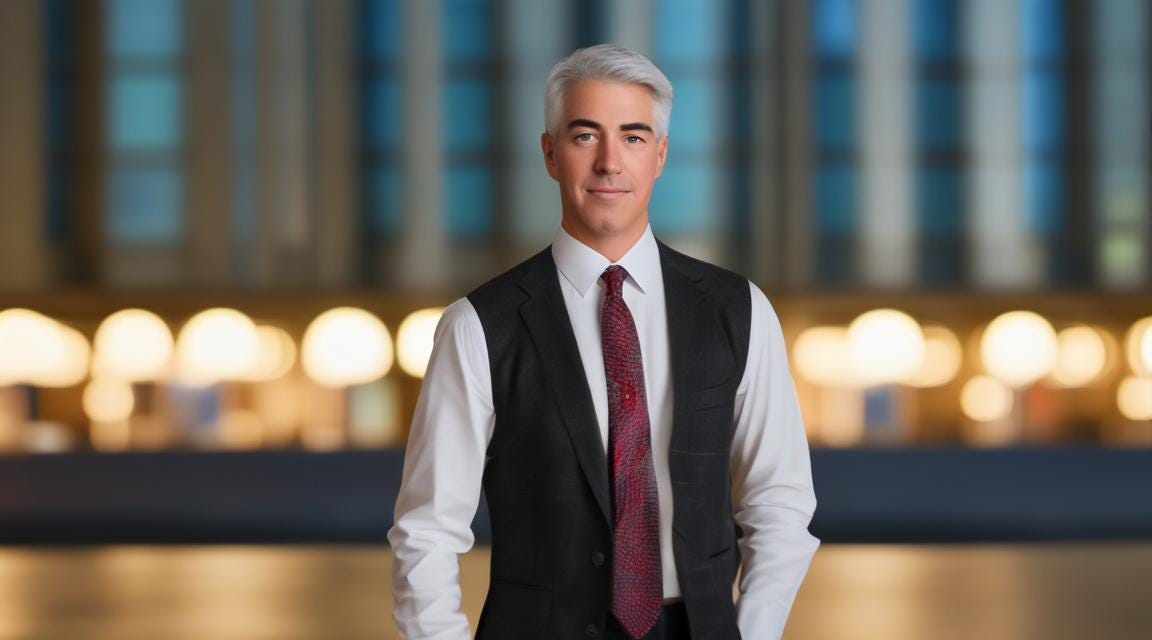Ackman's $25 Billion IPO Dream Crumbles Amid Investor Apathy
Bill Ackman abandons Pershing Square IPO plans as market volatility and social media backlash bite.
Recently, the famous hedge fund manager Bill Ackman gave up his latest try at an IPO of Pershing Square. Originally intended to be a $25 billion IPO, the goal had to be pared down to $2 billion. However, with orders coming in below $1 billion, Ackman last week decided to throw in the towel and scrap the plans altogether. Bill Ackman manages Pershing Square, an asset management company that pools investors' funds and invests in various instruments—bonds, stocks, currencies—to churn out returns for investors.
Ackman had always aspired to establish Pershing Square as an entity known for generating fast profits and long-term equity value. His business model is not very different from what private equity companies like Blackstone, KKR, and Apollo have practiced to perfection. Those companies have raised gargantuan sums, in some cases well into the trillion-dollar range. They promise investors above-average returns and have built considerable enterprise value, such that investors have been persuaded to buy into their long-term vision. And these were what Ackman aspired to. While Pershing Square managed under $10 billion, he wanted to raise another $25 billion, envisioning a future where his firm could manage $50 billion of assets. The plan was to launch a close-ended fund via the IPO, which would then set the foundation for bringing the entire enterprise into the public domain.
Ackman tends to ruffle feathers on Wall Street and this could be another contributing factor to the failed IPO; he’s not liked by heavy hitters like Carl Ichan in a now famous fight about the multi-level marketing company, Herbalife.
Even though Ackman was running the project and he had his projects like Burger King to anchor the required credibility, the IPO did not attract investors. According to several reports, the lack of sufficient upside in current market conditions and extreme volatility in equity markets also contributed extensively. Other reports have indicated that perhaps it was Ackman's disproportionate persona on social media, made more pronounced by other commentary on social and political issues, that resulted in investor disinterest. Forecasting how long returns will last has become a central challenge for today's modern investing. It's not unusual to expect Google and Facebook to be returning profits for many generations, yet, more often than not, the game played in investment management is one of short–term bets. These bets can yield high returns, but that high potential is high risk, making it difficult for investors to commit to a long-term valuation of such companies.
The challenges Ackman faced highlight a broader issue in the finance industry: convincing investors to value a general partner entity like a company rather than just a fund. This skepticism is not new, and the experience of Ackman is a live testimony to the complex nature of this approach. However, the reverses of fortune that Ackman has had are also exceptional. He has been able to master phenomenal highs and lows in his finances, just tweaking his strategies to evolve better with each bounce back. His capacity to risk-manage and take advantage of market opportunities in no way describes anything else than finding aplenty.
This will likely not be enough to discourage him and will likely, with a fresh approach, move forward, again likely still seeking innovative ways to reach his goals. Interestingly, the talk around Ackman's IPO also includes how his social media use has affected his cause. Many say that his boisterous nature and sometimes controversial opinions on Twitter and other social media outlets may have driven potential investors away. Others, however, believe that his ability to get messages across to so many people at once will be an advantage: he will be able to convey a vision and plans more easily to everyone. At the end of the day, the people working in finance understand that performance is measured in an everyday context, and it's decision quality that really counts, not the tweets. How good Ackman is at making money for his investors will remain unchanged; he has been doing this for a reasonable period of time. And this outspokenness could add trust and credibility among his listeners.
Further, current market opinion is deeply divided on all things 'woke' and relevant topics at the moment; what some may read as highly charged comments from Ackman, others will read as a breath of fresh air and support for their views on these topics. The inability to monetize Pershing Square's IPO, in essence, reflects the greater impossibility of effectively monetizing investment management businesses as separate entities. The case of Ackman would suggest that while traditional financial analysis still is important, the ability to speak directly with a large audience could certainly be beneficial and potentially a hindrance to one’s stock price and favorability.





